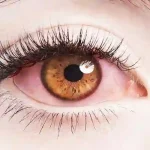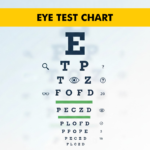Following a good diet and health practices is a must for every expecting mother. They have to be very mindful of how they take care of their own health and fetal conditions (child in the womb). It might come as a shocker to you but eye infections during pregnancy are more prevalent than you may be aware of as pregnancy is an immunocompromised state. Such infections can have adverse effects on the eyes and may affect eyesight as well. Thus, expecting mothers should take good care of themselves, including their eyecare.
Causes of eye infections during pregnancy
Scratches and injuries
Excessively rubbing your eyes may result in a scratched cornea or corneal abrasion. Cornea is the outer protective layer of the eyes and its abrasion can be painful. Injuries and trauma can also lead to tearing, redness, and inflammation. This in effect increases the chances of microbes or dirt getting stuck and irritating the eye.
Viral infection
Viruses can trigger inflammatory reactions in the body and the same goes for your sensitive eyes. It is an adenovirus that causes viral eye infection, also known as viral conjunctivitis. Right after one catches a viral eye infection/pink eye while pregnant, the symptoms start manifesting. As viral eye infection is highly contagious, it is extremely important to maintain proper hygiene and get proper medical treatment without delay.
Allergies
Seasonal allergens and other factors like mold, dust, pet hair or dandruff may also result in eye inflammation which is also called an allergic pink eye (allergic conjunctivitis). Usually, symptoms of allergic pink eye include itching, redness, and water discharge. These symptoms are less severe than infectious pink eye (infectious conjunctivitis) and there is no oozing or crusting.
Bacterial eye infection
Pink eye is also caused due to bacteria and people who regularly use contact lenses are more prone to it. Hence, maintaining proper hand hygiene is crucial while wearing contacts. Bacterial eye infections are more discomforting than allergic eye problems and also involve oozing and crusting.
Stye
Stye during pregnancy is yet another common occurrence. However, It can occur to anyone belonging to any age and is not restricted to pregnant women. A stye is a reddish bump on the corner or edge of the eyelid. Stye develops when infection occurs in an oil gland on the corner of the eyelid. Usually, the infection is caused due to a bacteria called staphylococcus aureus.
Environmental factors
This is something all of us have experienced, remember when sand gets or debris gets in your eye. Although our eyes can prevent foreign objects from entering, sometimes, something can get stuck, resulting in eye injury or allergic reaction which may ultimately lead to pink eye or conjunctivitis.
How to deal with eye infections during pregnancy?
As soon as you notice the infected eye symptoms, the first and foremost thing is not to indulge in any self-medication or remedies because of freaking out. Remember that if you handle it with care and visit your doctor immediately, things will remain under control and ease out gradually. As oral medication is usually avoided in such a case during pregnancy, your eye doctor will prescribe you medicated eye drops which you must use for the advised period without fail.
Follow these simple and effective tips to treat an eye infection when pregnant:
- Thoroughly wash hands with soap and keep them sanitized before and after touching the eyes and nose
- Refrain from touching the eye non-infected eye after touching the infected one
- Do not share pillows and towels
- Avoid getting in the swimming pool
- Make sure that the eye discharge is cleaned properly and the infected eye is not patched
When confirmed by the doctor that your eye condition is non infectious, i.e. not induced by bacteria, virus and is just an allergic reaction, you may try the following things to get faster relief from the symptoms:
- Warm or cool compression: Using compressions, either warm or cool helps in giving symptomatic relief and hastening the healing process.
- Mild cleansing: Soak cotton balls or pads in water to gently cleans the crusty layer or eye discharge which is causing your irritation and making the symptoms grow severe.
- Ditch contact lens: Avoid wearing contact lenses and any other foreign substance like eye makeup unless inflammation and other symptoms vanish completely. This applies for both, inflammation caused due to contagious and non-contagious eye conditions.
Steps to prevent eye infection during pregnancy
It may sound common and generic but maintaining good hand hygiene is the best way of preventing eye infections during pregnancy. It is important to maintain distance from sick people as it may make patients susceptible to catching an infection. Patients are encouraged to practice good personal hygiene practice. Kindly ensure that you consume foods that boost immunity.
Final words on eye infection during pregnancy
Catching an eye infection during pregnancy is definitely troublesome. On the bright side, it causes no major complications for your or the baby. And, when you visit an eye doctor, clearly discuss your pregnancy status so that you can receive safe and effective eye pressure. For comprehensive eye care without delay, visit Centre For Sight. We believe that ‘every eye deserves the best’. To book a consultation, log on to https://www.centreforsight.net/
FAQs on eye infection during pregnancy
Can pregnancy affect my susceptibility to eye infections?
Yes, pregnancy can affect your immune system, making you more susceptible to various infections, including those affecting the eyes.
What are the common symptoms of an eye infection during pregnancy?
Symptoms may include redness, itching, irritation, discharge, swelling, pain, sensitivity to light, and blurred vision.
Are there any specific eye infections that pregnant women are more prone to?
Pregnant women may be more susceptible to viral infections such as conjunctivitis (pink eye) and herpes simplex virus (HSV) keratitis due to changes in their immune system.
Is it safe to use over-the-counter eye drops or medications during pregnancy?
It’s essential to consult with your healthcare provider before using any over-the-counter eye drops or medications, as some may not be safe during pregnancy.





